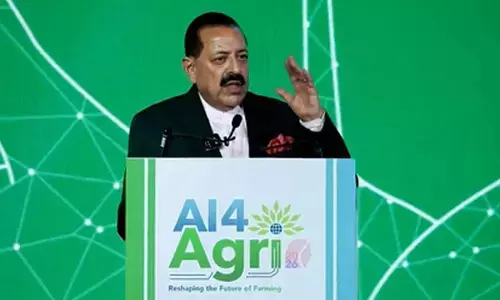Only Lip Service To Good Governance

‘Governance’ is the process of decision-making and the process by which decisions are implemented (or not implemented).
'Governance' is the process of decision-making and the process by which decisions are implemented (or not implemented). Governance can be used in several contexts such as corporate governance, international governance, national governance and local governance. In the 1992 report entitled 'Governance and Development,' the World Bank set out its definition of Good Governance. It defined Good Governance as "the manner in which power is exercised in the management of a country's economic and social resources for development."
The AP government decision to increase the number of districts from 13 to 26 has long-term implications for the State. Even Telangana faced this sometime back. It also was meant for governance convenience. AP also says the move is to reach the developmental fruits to the people faster and better.
What is good governance? Good governance has 8 major characteristics. It is participatory, consensus-oriented, accountable, transparent, responsive, effective and efficient, equitable and inclusive and follows the rule of law. It assures that corruption is minimised, the views of minorities are taken into account and that the voices of the most vulnerable in society are heard in decision-making. It is also responsive to the present and future needs of society.
Let us look at the guidelines laid down by the United Nations. Participation is the first one. People should be able to voice their own opinions through legitimate immediate organisations or representatives. This includes men and women, vulnerable sections of society, backward classes, minorities, etc. Participation also implies freedom of association and expression.
How much of this is inherent to any rule now? Next is the Rule of Law. This says that the legal framework should be enforced impartially. Third cornerstone tells us that it should be consensus-oriented. Consensus-oriented decision-making ensures that even if everyone does not achieve what they want to the fullest, a common minimum can be achieved by everyone which will not be detrimental to anyone. Fourth is Equity and Inclusiveness which demands that people should have opportunities to improve or maintain their well-being. Next comes in the line Effectiveness and Efficiency, where processes and institutions should be able to produce results that meet the needs of their community. Resources of the community should be used effectively for the maximum output. Accountability, transparency and responsiveness follow next.
It is strange that the governments in this country keep talking of good governance and establish institutions and centres to train people in good governance. It is obvious that something is lacking in the governance. Otherwise, where is the need for such separate entities? Importance of governance is clearly inscribed in the Indian Constitution which is built on the premise of the Sovereign, Socialist, Secular and Democratic Republic committing itself to democracy, rule of law and welfare of people.
According to former United Nations Secretary-General Kofi Annan, "Good governance is ensuring respect for human rights and the rule of law; strengthening democracy; promoting transparency and capacity in public administration." He also said that "Good Governance is perhaps the single most important factor in eradicating poverty and promoting development." In fact, most of our civil servants are taught this earnestly. Even students preparing for the Civil Service Examination read these things. Yet, it is all brushed under the carpet once they acquire positions of responsibility. Size does not matter. Commitment does.








